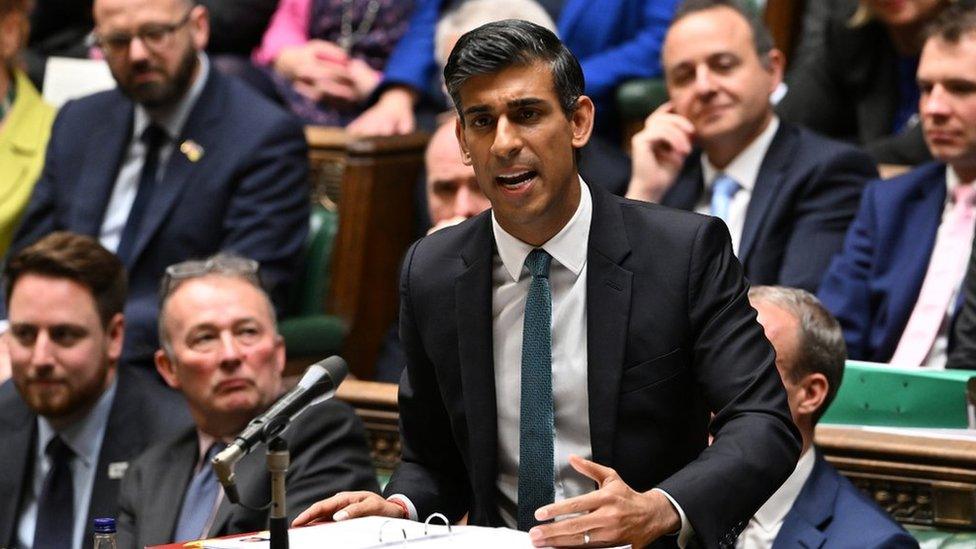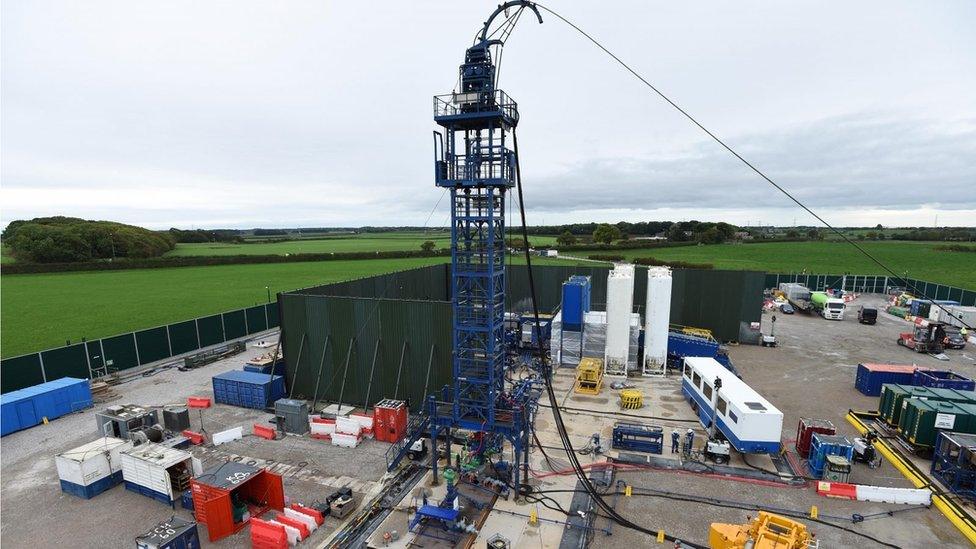Fact-checking Rishi Sunak's first PMQs
- Published

Rishi Sunak faced his first Prime Minister's Questions on Wednesday.
Here are a few of the claims he made.
'There are over 15,000 new police officers on our streets'
Mr Sunak quoted the police numbers in response to a question from Sir Keir Starmer.
The Labour leader wanted to know about Home Secretary Suella Braverman - who is in charge of policing - and whether her "integrity and professionalism are beyond question".
A target to recruit 20,000 additional police officers in England and Wales by March 2023 was set out in the 2019 Conservative Party manifesto.
It was an attempt to reverse cuts since 2010, which had seen the number of officers fall by about 19,000.
Figures released on Wednesday,, external for the period up to 30 September, show that just over 15,300 officers have been recruited.
So, police forces still have to recruit almost 5,000 more officers to meet the spring deadline.
They are also having trouble retaining officers.
In the year to March 2022, more than 8,000 police officers left forces in England and Wales. That's a 35% increase on the previous year and the highest volume of leavers in almost 20 years.
There are concerns about the impact of so many experienced officers leaving.
'I'm pleased that there are 3,500 more doctors and over 9,000 more nurses working this year than last'
The prime minister was responding to a question about the need for more doctors and dentists.
He's got his numbers about right.
There were about 4,000 more community and hospital doctors, and 9,230 more nurses and health visitors working in the NHS in England in June 2022 (the latest figures available, external) compared with the previous June. That's an increase of about 3% of each.
However, NHS data suggests the number of vacant nursing posts may have increased slightly, external since last year.
That means there might be more staff coming on board, but not fast enough to keep up with growing demand.
'I've already said I stand by the manifesto on that'
The prime minister was asked by Green Party MP Caroline Lucas if he would reverse the decision of predecessor Liz Truss to end the ban on fracking.
Ms Lucas drew attention to the Conservative Party's 2019 manifesto, which said: "We will not support fracking unless the science shows categorically that it can be done safely."
Hydraulic fracturing, or fracking, is a method of recovering oil and gas from shale rock using water, sand and chemicals at high pressure.
Chaos surrounding a vote on fracking was one of the events that led up to the resignation of Liz Truss.

At PMQs, Mr Sunak said he stood by the manifesto stance on fracking.
Downing Street later confirmed it was now government policy to maintain the moratorium.
During the leadership campaign in the summer, Mr Sunak had mirrored the position of Ms Truss on fracking. He said he would support it "if local communities support it".
'As chancellor we... introduced actually very strong pay increases [for nurses]'
Mr Sunak was responding to a Labour MP who said a nurse would have to work for thousands of years "to match the vast wealth of this prime minister".
He was involved in decisions about public sector pay when he was chancellor, from February 2020 until July 2022.
There was particular criticism in March 2021 for the proposed 1% pay rise for nurses in England, which was increased to 3% in July that year, with the award backdated to April.
The Office for National Statistics Annual Survey of Hours and Earnings gives yearly figures, external for workers in particular jobs.
In the category "nursing professionals", median pay - the amount that half of nurses would be earning more than and half earning less than - was £28,864 in April 2020 and £31,676 in April 2022.
That's a UK-wide figure, although the Westminster government is only responsible for nurses in England.
That increase was wiped out by rising prices over those two years. If anything, it was a small cut in real terms.
Several unions representing nurses are balloting, or planning to ballot members, for strike action over pay, including Unison, the Royal College of Nursing, Royal College of Midwives, GMB and Unite.


